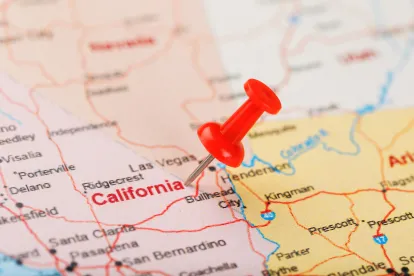In the last few weeks, product supply chains have been experiencing massive interruptions due to the COVID-19 pandemic. For some industries, these challenges have resulted in increased communication among manufacturers, distributors, and retailers. Communication across the supply chain is also recognized in new amendments under California’s Proposition 65 “Clear and Reasonable Warning” regulations (Prop 65). These new amendments become effective on April 1, 2020 and now provide much greater clarity as to how certain entities in the supply chain can satisfy their warning obligations under Prop 65 when it is not clear who the ultimate retailer is. The amendments do not reduce the obligation to provide the warning but they do clarify how intermediate parties in the chain of distribution can satisfy their obligations under Prop 65. We had previously discussed these amendments when they were proposed in January 2019.
Background
As we noted in previous blog posts (here, here and here), the California Office of Environmental Health Hazard Assessment (OEHHA) overhauled the “Clear and Reasonable Warning” regulations effective August 30, 2018. These amendments sought to lessen the burden on retailers in providing a “Clear and Reasonable Warning” while leaving it up to the importers, suppliers, manufacturers, and distributors to work out among themselves how to get the appropriate warning to the retailer. However, in those amendments, unless the upstream entity was providing a label warning, notification was only required to the retailer from the entity immediately upstream from the retailer.
For some industries, this did not make sense, where for example, the manufacturer was the entity that created a product or components that then progressed through several other manufacturers and distributors down the supply chain.
After a short period of time, many within the supply chain began sending “downstream” or “upstream” letters (depending on where they were within the supply chain) in order to communicate or verify what steps are underway to comply with the “Clear and Reasonable Warning” regulations. OEHHA subsequently, but somewhat passively, endorsed this form of communication in guidance, stating that “manufacturers and others in the chain of commerce should take appropriate actions to ensure that the warning is passed along to the retailer and ultimately to the consumer . . . How that is done will vary from situation to situation.”
New Regulation
With its new amendment effective April 1, OEHHA has decided to more firmly endorse communications across the supply chain by amending its regulations in Section 25600.2 to the following:
The manufacturer, producer, packager, importer, supplier, or distributor of a product may comply with this article either by providing a warning on the product label or labeling that satisfies . . . the Act, or by providing a written notice directly to the authorized agent for the business to which they are selling or transferring the product or to the authorized agent for a retail seller, so long as the business to which they are providing the notice is subject to . . . the Act.
(Emphasis added). We let our readers know about this potential new amendment when it was proposed a little over a year ago. Following the notice and comment period, OEHHA now will require that the manufacturer, producer, packager, importer, supplier, or distributor of a product comply with the “Clear and Reasonable Warning” regulations either by providing a warning on the product label or by providing a written notice directly to the authorized agent for the business to which they are selling or transferring the product or to the retail seller.
As we noted in our previous post on this, the written notice letters from upstream suppliers and manufacturers to downstream distributors and customers have been commonplace among many industries with more complex supply chains and it was a positive change showing that OEHHA had its pulse on what industry was doing.
The new amendments become effective on April 1, 2020. So far, there has not been any communication from OEHHA providing for an extension to comply due to COVID-19. However, Squire Patton Boggs will continue to keep you posted on the latest developments in this area.





 />i
/>i
